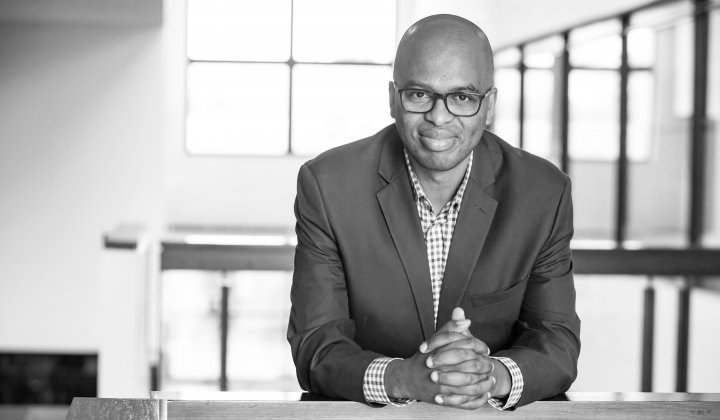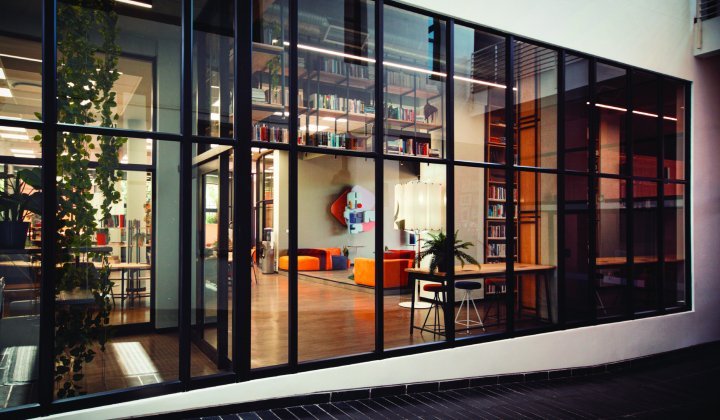Much of this issue of Acumen, our first of 2021, is devoted to the impact of Covid-19 on the world, on business, capitalism, society and health care. As our mouthpiece publication, Acumen often talks to many of the internal discussions we have as we continuously reassess our role as a leading global and African business school. In 2020, many of those discussions centred on our own strategic response to the unfolding pandemic.
An organisation’s strategic response to a crisis can take many forms, as explored by our international peers, Matthias Wenzel, Sarah Stanske and Marvin B Lieberman in their 2020 paper, Strategic Responses to Crisis. Responses generally fall within four overarching types: retrenchment, persevering, innovating, and exit. Our tech-enabled, human-centred response puts GIBS, I feel, firmly at the intersection of innovating while persevering. In other words, we are capitalising on the future-proofing we had already put in place and experimenting within this digital space to create a relevant business school offering for a changing world.
The humanity behind this approach is deserving of particular attention as we step into 2021, the year in which we shift from responding to crisis after crisis to embedding new behaviours and business models into our new reality – hopefully a more human-centred experience. This came home to me recently when I was perusing the World Economic Forum website in preparation for January’s Davos gathering. One contribution stood out for its reflections about the 1347-51 Black Death, its impact on technological change, and profound labour shifts in Europe.
Between 75 and 200 million people succumbed to this bubonic plague, a staggering figure even now and, at the time, around 30-50% of Europe’s entire population was lost. Over and above the psychological, family and social toll of this devastating plague, the economic impact shifted the region’s entire labour pool, hiking the value of skilled workers over unskilled, which resulted in profound pay discrepancies. Great for the skilled worker, whose quality of life increased dramatically, but a shift which widened the gap between skilled and unskilled labour and, in time, triggered technological innovations to reduce costly wage bills.
Sound familiar?
The impacts of Covid-19 include, among myriad others, technological change on a scale humanity has yet to experience as robots and artificial intelligence step in to overtake skilled jobs in almost every quarter of the global economy. Researchers are still trying to make sense of the potential layers of impact, but from virtual work to homeschooling and social restrictions, the jury is still out on many of the shifts currently underway. While society and business unfold in a new and innovative direction, the already cavernous wealth gap continues to widen. This is made worse by the devastating impact of lockdowns on key employers in the retail, hospitality, tourism and airline industries.
The difference today, rather than looking 674 years into the past, is that business and its leadership has (in large part) evolved to consider the social nature and responsibility of corporations. From shared value to the attainment of Sustainable Development Goals, responsible business to corporate social investment, ethical and well-run businesses worldwide recognise that their success is integrally linked to the health and longevity of society. This means that as managers, leaders, entrepreneurs and business schools, our current challenge and thinking must be geared towards the pursuance of strategies and initiatives that are more inclusive and find ways to halt the dislocation of large swathes of the global population.
These must surely be our goals as business schools in 2021:
- To make business healthier so that companies can fulfil their vital role of building inclusive economies.
- To help leaders as they rethink the role of technology in their businesses, while always reflecting on the human cost.
- To offer solutions and debate ways in which to reduce the negative impact of resource dislocation on society as a whole.
- To upskill workers and professionals affected by these shifts, even if it means changing our own strategic direction.
- To embrace, with confidence, the profound value to be had in collaboration and strategic thinking.
I cannot think of a more important and profound moment in human history to be working with our students, clients and continent to shape a different – I hope, better – tomorrow.



